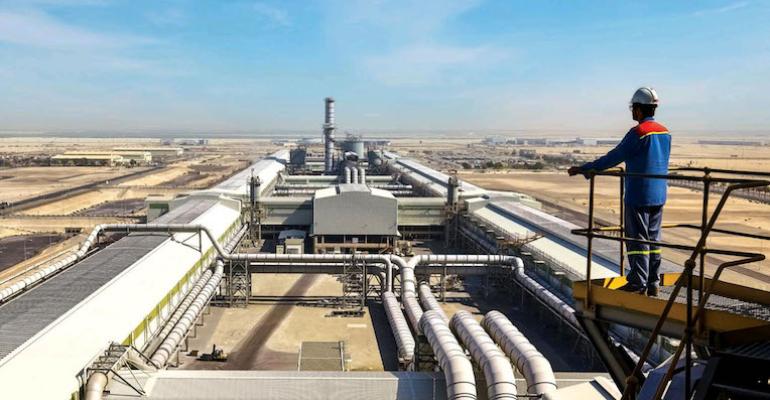The announcement marks “a new phase of evolution towards strengthening Abu Dhabi’s position as the region’s leading industrial and manufacturing destination,” AD Ports Group said.
Khalifa Industrial Zone Abu Dhabi (KIZAD) and Specialised Economic Zones (ZonesCorp) have been integrated into the newly formed KEZAD Group, which comprises 12 economic zones with a total area of 550 sq km, including 100 sq km designated as Free Zones.
“KEZAD Group is now responsible for the largest integrated trade, logistics and industrial hub in the region and is the largest operator of purpose-built economic zones and workers residential cities in the UAE,” Mohamed Al Ahmad, CEO, KEZAD Group said.
“We will deploy this enhanced scale to fully support strategic industries and enable sustainable diversification and growth. By providing a suite of favourable business solutions and economic zone benefits, KEZAD Group will provide an unmatched platform across strategic locations that drives growth across the region and beyond.”
Where the KIZAD master plan previously called for a total area of 410 sq km, today, Abu Dhabi is contemplating, at 550 sq km as a functioning business area.
The new entity oversees more than 300,000 square metres of prebuilt warehouse facilities and will house more than 40 staff accommodation complexes with a capacity of over 450,000 beds, located in Abu Dhabi, Al Ain and Al Dhafra Region, including the 77,000 beds operated by KIZAD Group.
An official statement said KEZAD Group would be solely responsible for managing the process of planning, developing, operating, regulating, and promoting combined assets (KIZAD, ZonesCorp and KIZAD Communities) under the AD Ports Group’s Economic Cities & Free Zones portfolio, which makes up 55% of the UAE’s industrial area.
“The forward-looking strategy looks to drive the enhancement and development of the industrial and overall business ecosystem in Abu Dhabi in line with AD Ports Group’s integrated model for one-stop economic hubs that provide seamless operations and efficient cross-market trade solutions for businesses via the emirate,” it said.
According to bond prospectuses, long-term forecasts for Khalifa Port Container Terminal (KPCT) call for total capacity of 15m teu by 2030. This compares to current capacity of 19.3m teu today at Jebel Ali Port, the region's largest container port. Last year, KPCT saw throughput of 3.4m teu, compared to 13.7m teu at Jebel Ali.
In 2018, MSC’s Terminal Investment Limited (TIL) signed a joint venture agreement with AD Ports subsidiary Abu Dhabi Terminals, bringing KPCT’s capacity to 5.3m teu.
Cosco Shipping Ports could increase capacity at the CSP Abu Dhabi Terminal, which opened in 2018, from a current 2.5m teu to 3.5m teu, if demand warrants. A new terminal to be operated by CMA CGM will add another 1.8m teu in its first phase, scheduled to open in 2024, which could bring total KPCT capacity to 10.6m teu.
Two or three more deals along these lines with global operators could see KPCT growing even further, especially if planned onshore industrial output and economic development translates into additional cargo.
“AD Ports Group is committed to strengthening the foundations of the UAE's manufacturing and industrial sectors, recognising the significant economic and national benefits that such development will bring,” Capt. Mohamed Al Shamisi, managing director and Group CEO, AD Ports Group, said. “The launch of KEZAD Group, which brings together our Economic Cities & Free Zones assets, supports the expansion of dedicated ecosystems for strategic industries, boosting access to international markets, integrating advanced technologies, and accelerating the transition to a circular economy.
“From a business perspective, Economic Cities & Free Zones provides AD Ports Group with revenue generated by long-term contracts, and stimulates further growth across our other operations, as clients deploy our logistics, ports and digital services.”
Copyright © 2024. All rights reserved. Seatrade, a trading name of Informa Markets (UK) Limited.
Add Seatrade Maritime News to your Google News feed.  |

